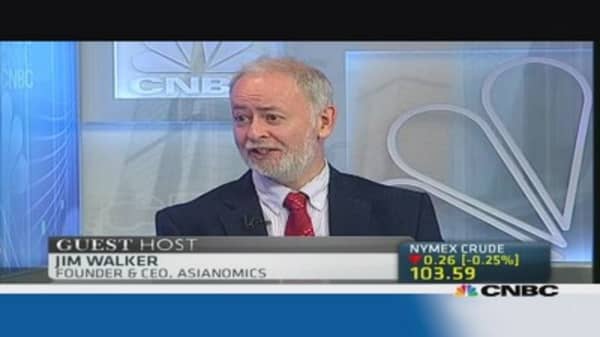As the world's worst performing currency this year plumbed new lows this week, some analysts are suggesting that India policymakers loosen the grip on the rupee to stop the rout.
Peter Redward, principal at Redward Associates & Andrew Freris, told CNBC's Asia Squawk Box on Friday that India needs to follow in the footsteps of New Zealand and South Korea and make its currency fully convertible.
"If you look at the New Zealand dollar, it was floated at $0.44 and it's now at (around) $0.80, the problem it has now is that it's overvalued," said Redward, referring to near 80 percent hike in value since the currency was floated in 1985.
Redward also referred to how freeing up the South Korean won has demonstrated potential benefits for the currency.
(Read more: Distant bright spot for India's battered rupee?)
"When Korea floated the won, which is a good example for India as it has more of an emerging market flavor, the won initially came under intense pressure but now the won has strength," said Redward.
The won has risen roughly 30 percent against the U.S. dollar since the currency was made fully convertible in December 1997.
Redward said he expected the rupee to react in a similar fashion if the government were to take steps to liberalize it. The rupee is currently fully convertible on the current account; the currency remains partially convertible on the capital account.
"Initially it [the rupee] would probably [fall]. That would be an overreaction and would provide an opportunity for people to buy," he added.


.530x298.jpg?v=1377234503)


